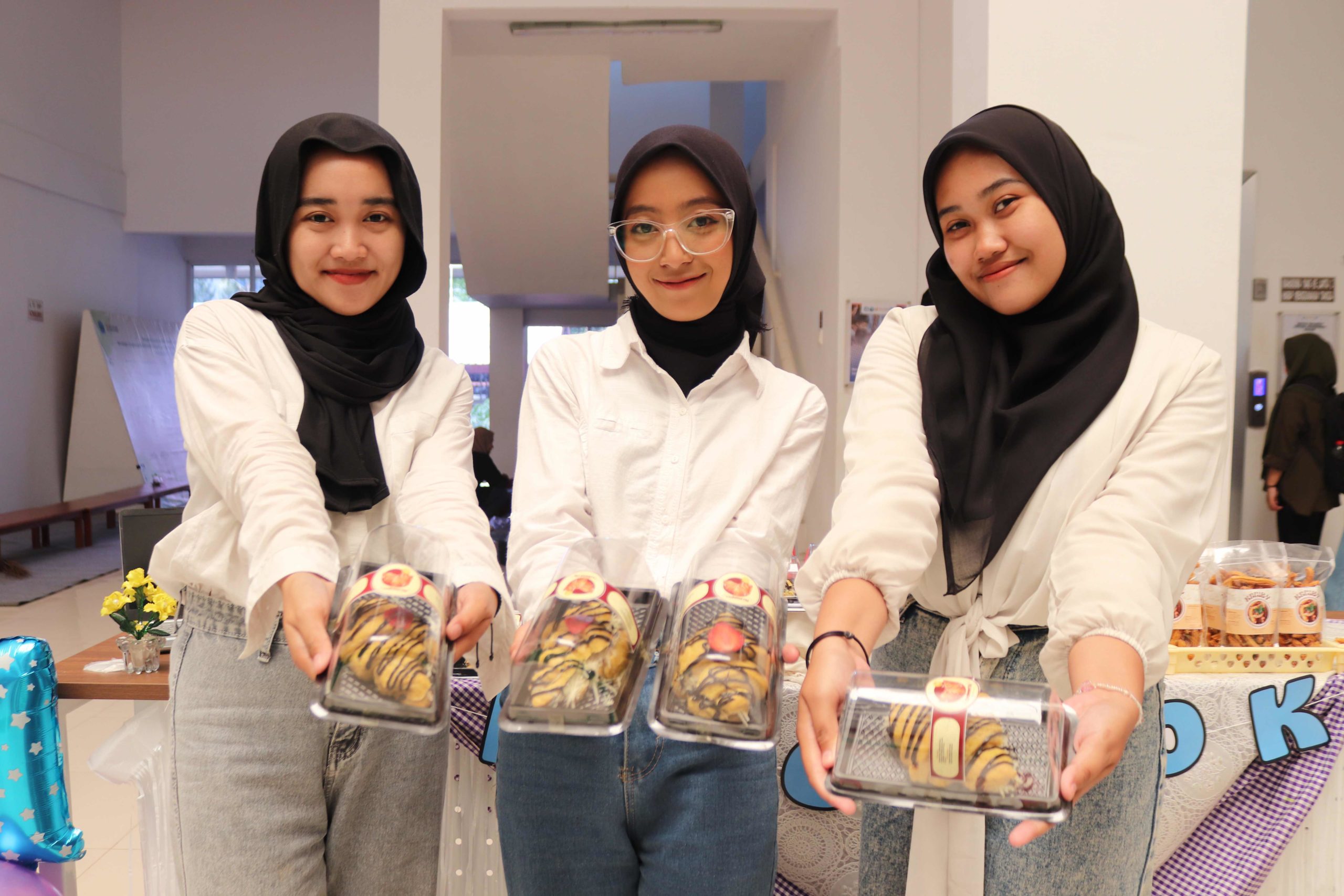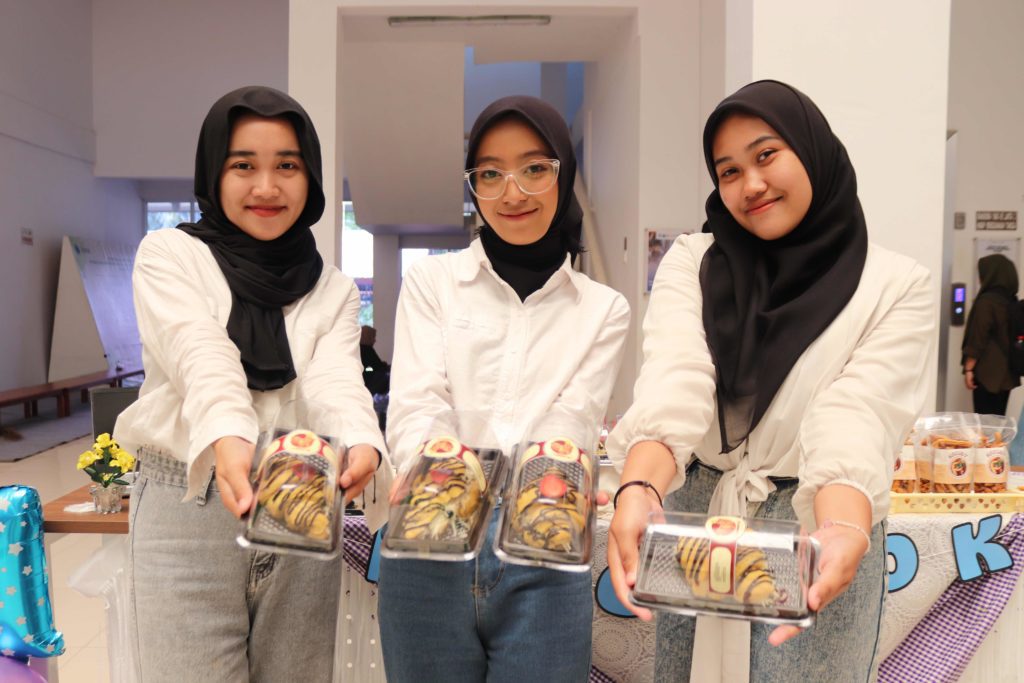

Students of the Food Industry Technology Study Program at Politeknik Negeri Jember (Polije) created a food product innovation in the form of kroisan made from reject yellow sweet potatoes. This innovation was born through a project-based learning (PBL) program, which integrates hands-on practice to create solutions to food loss problems in the food industry sector.
Nia Ramadani, one of the student team members, explained that their kroisan product utilizes yellow sweet potato waste that is processed into flour.
“The product we made this time is processed from yellow sweet potato waste, namely yellow sweet potato flour. We made kroisan with substitute ingredients, namely additional yellow sweet potato flour that we have processed before,” Nia explained.
In addition, Nia added that the kroisan is made fresh and uses the best quality chocolate filling. This product has various advantages, such as being free from additional coloring, without artificial sweeteners, long-lasting, and suitable for consumers who need gluten-free products.
“We hope this product can be a solution for food waste management while providing healthy food choices for the community,” she added.
According to Nia, the PBL process provides valuable experience that helps students understand many aspects of food product development.
“Through this program, we became more familiar with various aspects related to products, such as nutritional analysis, waste management, and packaging design. All of these are important provisions for us to produce high-quality products,” she said.
Nia also hopes that this croissant product can be developed further and can be sold in various places such as at Tefa (Teaching Factory) Bakery and Coffee at Polije.
“Our hope is that this product can be sustainable and become an inspiration for other food innovations. In fact, we see a great opportunity to include these croissants in Tefa Bakery and Coffee as one of the featured products,” he added.
Aulia Brilliantina, S.TP., M.P., Coordinator of the Food Industry Technology Study Program, explained that this program was designed to introduce student work while supporting food sustainability.
“We carry the theme of sustainable food product innovation with the aim of creating creative solutions to reduce food loss. In this case, the raw materials used are reject products from PT Mitra Tani 27, such as edamame and reject sweet potatoes, which have not been utilized optimally before,” explained Aulia.
Aulia added that this program not only trains students in innovation, but also makes a real contribution to industrial partners.
“We see PT Mitra Tani 27 has great potential in processing tens of tons of reject products that are still not utilized. Students try to provide solutions in the form of processing waste into economically valuable products, such as cookies, bread, and cakes based on edamame and sweet potatoes. That way, the goal of reducing food loss can be achieved,” he explained.
Through this activity, Polije wants to show that food waste that has been considered worthless can be processed into innovative products with great market potential. Hopefully, this yellow sweet potato flour-based croissant will not only be an innovation that stops at the lecture bench, but also be able to contribute to creating a sustainable food ecosystem in Indonesia. (rda)